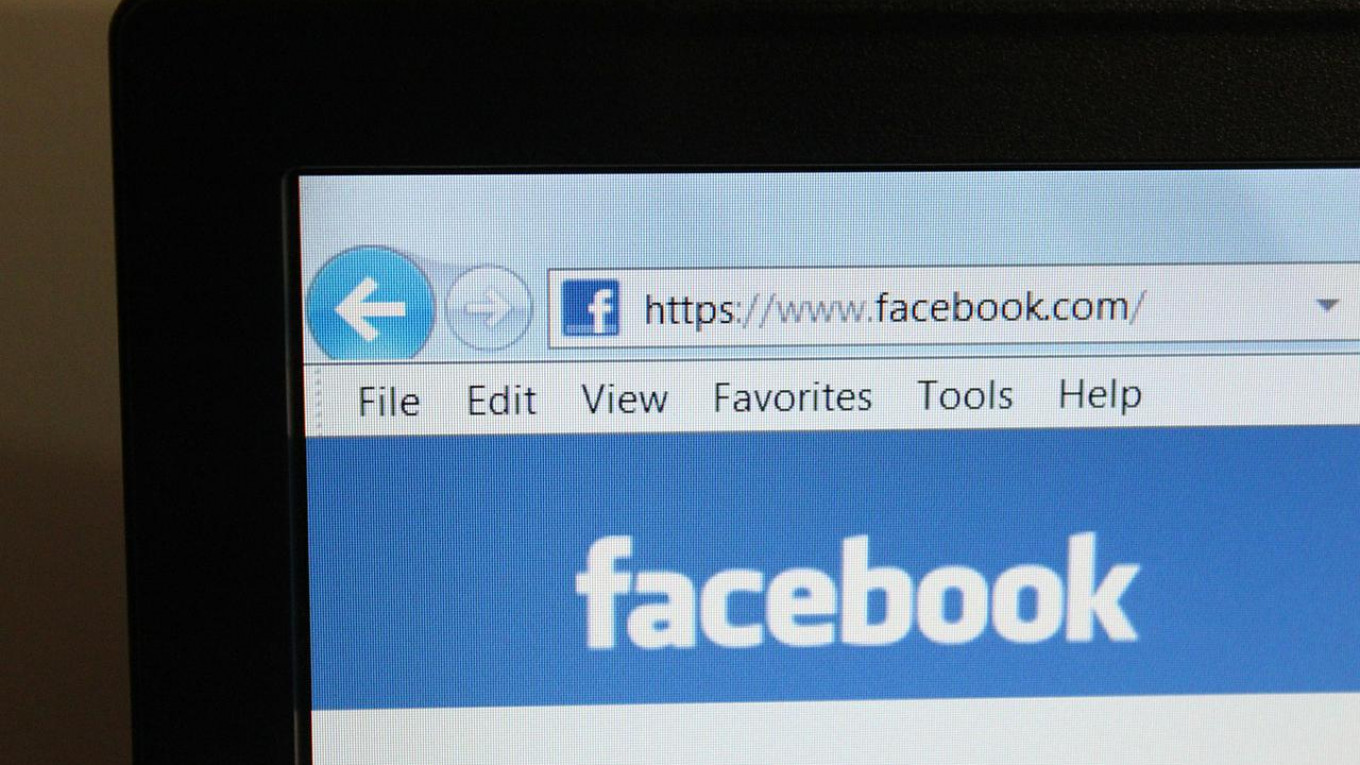Russia could ban Facebook next year if it fails to comply with a 2015 law requiring companies to store Russian citizens’ personal data on local servers, the state media censor said on Tuesday.
The U.S. social network would follow in the footsteps of LinkedIn, the social platform for professionals that was banned in Russia last year after a September 2015 law requiring companies to store Russian users' personal data on localized servers.
The head of Russia’s state media watchdog Roskomnadzor warned that “there are no exceptions” to compliance with the data storage law seen by some observers as unenforceable.
“We will either ensure that the law is implemented, or the company will cease to work in Russia,” Roskomnadzor chief Alexander Zharov was cited as saying by the Interfax news agency.
He said the watchdog is aware of Facebook’s popularity, with an estimated 14.4 million monthly and 6 million daily users in Russia as of last year.
"On the other hand, we understand that this is not a unique service. There are other social networks."
Twitter, Zharov said, has agreed to transfer by mid-2018 its Russian users’ data to Russian servers.
“We have no plans to investigate Facebook in that regard until the end of 2017," he added. "We will think about it in 2018. Maybe we will investigate.”
Kremlin spokesman Dmitry Peskov told reporters on a conference call that “there is legislation that should be respected,” the state-run TASS news agency reported Tuesday.
Zharov’s warning comes less than a week after Facebook CEO Mark Zuckerberg announced plans to share 3,000 ads linked to Russian companies suspected of influencing the 2016 U.S. presidential election.
The social media platform revealed this month it had shut down hundreds of fake Russia-based accounts that bought these social and political ads for $100,000. Facebook traced the purchased ads to the infamous “troll factory” based in St. Petersburg that employs users to advance pro-Kremlin propaganda known as the Internet Research Agency.
A Message from The Moscow Times:
Dear readers,
We are facing unprecedented challenges. Russia's Prosecutor General's Office has designated The Moscow Times as an "undesirable" organization, criminalizing our work and putting our staff at risk of prosecution. This follows our earlier unjust labeling as a "foreign agent."
These actions are direct attempts to silence independent journalism in Russia. The authorities claim our work "discredits the decisions of the Russian leadership." We see things differently: we strive to provide accurate, unbiased reporting on Russia.
We, the journalists of The Moscow Times, refuse to be silenced. But to continue our work, we need your help.
Your support, no matter how small, makes a world of difference. If you can, please support us monthly starting from just $2. It's quick to set up, and every contribution makes a significant impact.
By supporting The Moscow Times, you're defending open, independent journalism in the face of repression. Thank you for standing with us.
Remind me later.






